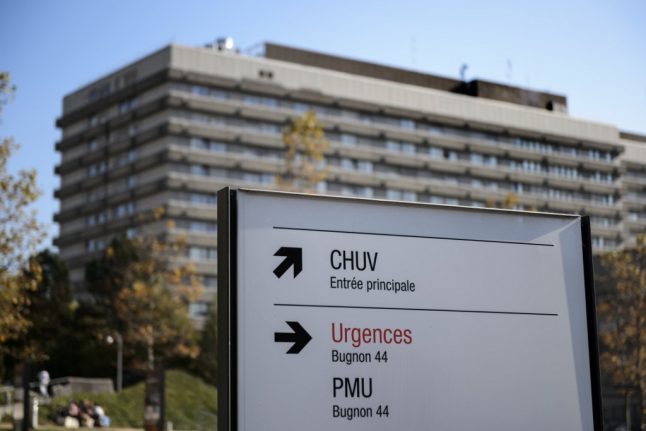Spain’s health and social services budget was cut by nearly 14 percent in 2012 — part of a drive by Prime Minister Mariano Rajoy's government to squeeze €150 billion out of the country's budget by 2014.
But the savings drive has taken a large toll in Spain, the new study in the British Medical Journal (BMJ) argues.
"I decided to conduct the research about Spain after I came across a study by Martin McKee looking at the situation in Greece," lead study author Dr Helena Legido-Quigley told The Local.
"That study showed that HIV and tuberculous rates were going up because of the crisis there, and I wanted to know what was happening in Spain," the researcher explained.
Legido-Quigley, a lecturer in Global Health at the London School of Hygiene & Tropical Medicine said the research process for the British Medical Journal (BMJ) paper had been difficult.
"There was one study about Spain compared depression rates in 2006 and then again in 2010–2011 and found that these had gone up by almost 20 percent."
Another study by police in Catalonia showed a ten-percent increase in suicides in the same period.
"But almost nobody is doing research in this area," Legido-Quigley told The Local.
"Then there is the fact that the cuts and the crisis came later in Spain (than in Greece), so we have to wait two years or so to get a real picture of what is happening in the country."
As a result, the BMJ study is "quite descriptive. It says what is happening now".
The report looks at three key aspects of health-care changes in Spain including the end of universal coverage in 2012, co-payments for medicines and the impact of privatization of hospitals.
The authors argue that while it is too early to properly assess the impact of the push for private hospitals in Madrid and Catalonia, there is evidence of increases in waiting times, cutbacks in emergency services and fewer surgical procedures.
Meanwhile, so-called co-payments for medicines — where patients contribute towards the costs of drugs — have been introduced across the board, and even been extended to include items such as prosthetics, dietary products and non-urgent ambulance journeys.
Finally, there is the end to universal health care that came in the wake of Royal Decree 16/2012.
That decree saw several hundred thousand undocumented adult migrants shut out from all but emergency and prenatal health care.
"Before this Royal Decree, Spain had universal health care, and it was something we were very proud of," Legido-Quigley told The Local.
"Now it is gone."
As part of their research, the study authors also spoke to health-care professionals in Catalonia.
Many reported feeling "shocked", "numbed" and "disillusioned" about the cuts and expressed fears that "the cuts are going to kill people".
"I was very surprised when I spoke to these people," Legido-Quigley explained.
"They didn’t seem to have any answers for the problem, and I believe that’s because they lack information about the changes."
The study’s chief author has a more pressing question though.
"Spain has a very cheap health care system with one of the best outcomes in terms of health. Public spending on health is only seven percent of GDP against an average of 7.6 percent in the European Union.
Everybody is happy with the system. So why change it during a crisis?"
But the BMJ study author says it is not too late to turn the tide: "Corrective measures can still be introduced in Spain."
The BMJ report has already received criticism from within the Spanish government, with sources within the health ministry saying Spain’s tuberculous rate actually fell by 29 percent in 2012.
Legido-Quigley counters this, however, by saying the BMJ analysis does not argue tuberculous rate have increased.
Instead, the BMJ study simply warns this is one possible consequence of the cuts to health spending in Spain.



 Please whitelist us to continue reading.
Please whitelist us to continue reading.
Member comments